Seeing co-workers being let go is not an encouraging sign, whether or not you feel secure in your position. To make matters worse, such layoffs often come out of the blue, causing even more confusion.
This redditor recently witnessed his team shrink by as much as 80%, which left him quite perplexed about why he wasn’t let go; especially since he admitted being far from an exemplary employee.
Seeking to learn more about how sudden layoffs can affect employees, Bored Panda has reached out to two experts, Melvin T. Stith Sr. Professor in Business Administration in the Department of Management at Florida State University’s College of Business, Dr. Wayne Hochwarter, and the Associate Professor of Sociology at College of Social and Behavioral Sciences, at the University of Massachusetts Amherst, Ofer Sharone, who were kind enough to answer a few of our questions. You will find their thoughts in the text below.
Layoffs in the workplace can cause confusion among the remaining employees
Image credits: Andrea Piacquadio (not the actual photo)
This redditor saw his team go from ten to two in just one day
Image source: imrichyourenot
Layoffs tend to affect more than just the people who suddenly became unemployed
Image credits: Yan Krukau (not the actual photo)
Unfortunately, layoffs are something no worker is immune to, especially in the tech sector. Even though the situation now doesn’t seem to be as dire as it was last year—when 1,100 firms in said sector reportedly laid off over 260,000 employees—there’s still a chance one might be asked to pack their belongings and say their goodbyes.
The OP’s story is a great example of how things can change in just one day. And such a change tends to influence not only the person who’s suddenly found themselves without a job, but the company itself, as well as the rest of its employees.
According to Dr. Wayne Hochwarter, the way people in the company are affected by layoffs depends quite a lot on how shocked they are by them. “It is often a relief if expected because people have an answer rather than uncertainty. If it’s not expected, people embark upon a sense-making process to figure out why it happened, why these people were chosen, why I am staying, and how likely this is to happen again,” he pointed out.
The expert continued to suggest that sometimes, a layoff can be quite a shock even when somewhat expected, especially if it is the first one that a company experiences. “The fact of the matter is that most companies don’t know how to manage layoffs, and it’s a more complex process than simply determining who leaves and who stays. Understanding the profound psychological impact of layoffs is crucial, as is emphasizing the urgency of fostering a supportive work environment in addition to managing the layoff process appropriately.”
Psychological research suggests that the way the workplace handles letting people go directly affects the way the latter handle them, too: treating leaving employees callously is likely to be met with anger and retaliation between the “victims” and the “survivors”.
According to Dr. Batia Wiesenfeld of New York University’s Stern School of Business, “If employees aren’t treated with common decency and respect in a layoff, the company’s reputation is besmirched in many eyes,” which in turn negatively affects its publicity and market performance. Research suggests that the things that can have particularly detrimental effects are curtness, surprise announcements, perceived unfairness, dishonesty, and public humiliation.
Watching fellow co-workers pack their belongings might leave the rest in the company feeling “survivor’s guilt”
Image credits: Mikhail Nilov (not the actual photo)
The OP’s story highlights that those who are not laid off might experience negative emotions, too, which often entail a sense of guilt. However, according to Dr. Hochwarter, the guilt following a layoff is less common than it used to be. “Given where we are in the economy and job market, people are glad to survive first and worry about the treatment of others later. That is not to say that some guilt is not experienced. However, rather than feeling guilty, most survivors are concerned about how the layoffs will affect them in the future. They may be asked to take on additional shifts or work on extra projects to fill in for those who have been let go.
“For those who do feel guilty, it is fleeting,” Prof. Hochwarter continued. “Reality has no long-term use for guilt because there are too many other issues that take people’s resources, both physically and mentally. This understanding can provide a sense of relief and reassurance in such challenging times.”
According to another expert, Assoc. Prof. Ofer Sharone, one thing that can provide some relief during a period of layoffs is the “myth of meritocracy”. He suggested that when an employee feels terrified over the likelihood of them being next or guilty over still having a job when others don’t, reminding themselves that they’re there for a reason might be a good idea. “They may cope with this guilt by trying to convince themselves that they deserve to stay and that the person laid off deserved to leave somehow. The ‘myth of meritocracy’—basically the belief that people deserve what they have because of merit, helps cope with fear and guilt.”
The “survivors” might feel bad for numerous reasons; they might believe, as the redditor did, that those with small children or caring for a sickly family member, for instance, might need a job more than them, despite them having no control over who is terminated or why.
“Companies will sometimes lay off people who are getting higher pay (to save money), or just eliminate entire parts of the company regardless of who is “good,” especially when decisions are made by upper management who have no idea who is ‘good’ and who is less so,” Sharone said.
Layoffs are not based on employees’ performance only
Image credits: RDNE Stock project (not the actual photo)
Talking about the possible reasons for being let go, Dr. Hochwarter emphasized that employee performance is a very intricate thing in organizations; only in very few companies is performance easy to measure and evaluate. That’s why it might not be easy for superiors to determine who to let go and for fellow employees to understand who was terminated and why, as sometimes, employees with a low performance rating are kept, when those with a high one are said goodbye to; according to Dr. Hochwarter, there can be several reasons why that happens.
“First, [low-performing employees] may be significantly cheaper,” he told Bored Panda. “Second, there may be the perception that they are more committed to the organization and have fewer alternatives than the top performers who likely have more opportunities elsewhere. Third, politics comes into most organizational decisions, and layoff decisions are no exception. Sometimes, it’s not important what you contribute, but who you know and what social networks you have immersed yourself in. Fourth, just because you’re a good performer doesn’t mean you are liked and a team player. You may be the best performer but incredibly narcissistic or selfish and a drain on the social environment at work. People think layoff decisions are all about keeping the best people, but it’s not often the case.”
Studies found that in addition to the low morale or a sense of guilt that “survivors” are left with, they often see other aspects of their professional life, such as their productivity or quality of work, take a hit, too. A study carried out by Leadership IQ revealed that close to three-in-four “survivors” have seen their productivity go down, and roughly four-in-five believe that the customers received a worse level of service since the layoffs.
In addition to that, many people who have stayed with the company after their fellow co-workers were laid off said that they would be less likely to recommend their workplace as a great place to work and believed that their company’s future prospects were headed downhill (81% and 61% of them respectively).
In the redditor’s case, it might be too early to tell if his productivity has decreased or if his company is bound to face a difficult time in the future. However, saying goodbye to so many of his team members seemed to have affected the “survivor”, one of the reasons likely being the uncertainty regarding what it means for his future with the company, too, which some redditors had some ideas about; they shared their thoughts in the comments under the OP’s post.
Netizens discussed certain details with the OP and provided advice on how to handle the situation
Some seemingly went through similar situations themselves
Poll Question
Thanks! Check out the results:
For God's sake. It's a fintech startup. This is something that anyone who gets into this world has to keep in mind. You will make a lot of money or get a lot of experience but you will always have the Damocles sword of dismissal hanging over your head either because of bad results or because they have failed to raise a round of funding or simply have not managed to be bought by a bank.
I spent my career in a corporate setting with multiple companies. They all have one thing in common: They don't give af about you or what you do. If your name comes up on the hit list, it doesn't matter what you have going on in your personal life, they'll just walk up and give you a box and tell you to pack your sh*t and gtfo. The only safe jobs are state and govt jobs. Corporate sucks.
They kept you because you're cheapest, which means they were stringing you along.
For God's sake. It's a fintech startup. This is something that anyone who gets into this world has to keep in mind. You will make a lot of money or get a lot of experience but you will always have the Damocles sword of dismissal hanging over your head either because of bad results or because they have failed to raise a round of funding or simply have not managed to be bought by a bank.
I spent my career in a corporate setting with multiple companies. They all have one thing in common: They don't give af about you or what you do. If your name comes up on the hit list, it doesn't matter what you have going on in your personal life, they'll just walk up and give you a box and tell you to pack your sh*t and gtfo. The only safe jobs are state and govt jobs. Corporate sucks.
They kept you because you're cheapest, which means they were stringing you along.

 Dark Mode
Dark Mode 

 No fees, cancel anytime
No fees, cancel anytime 






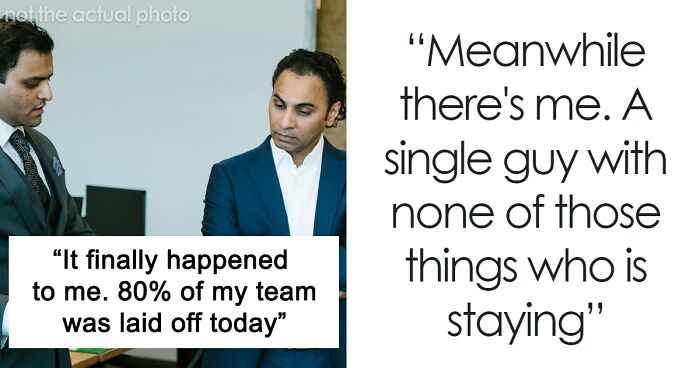

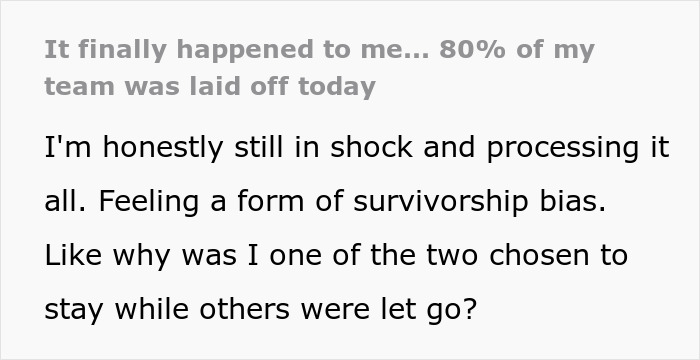
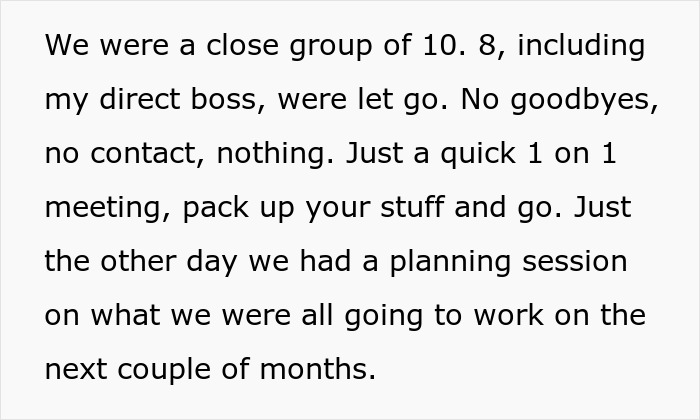

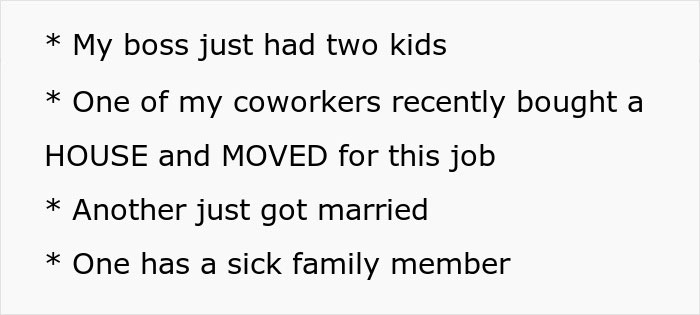

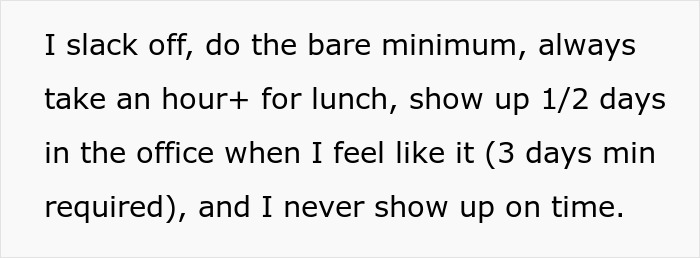
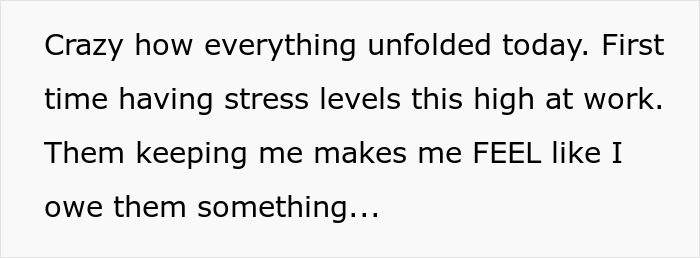




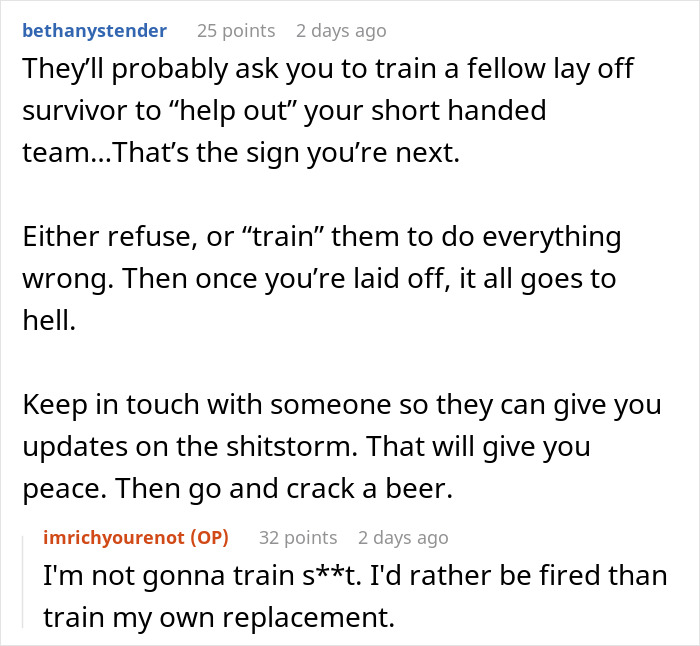



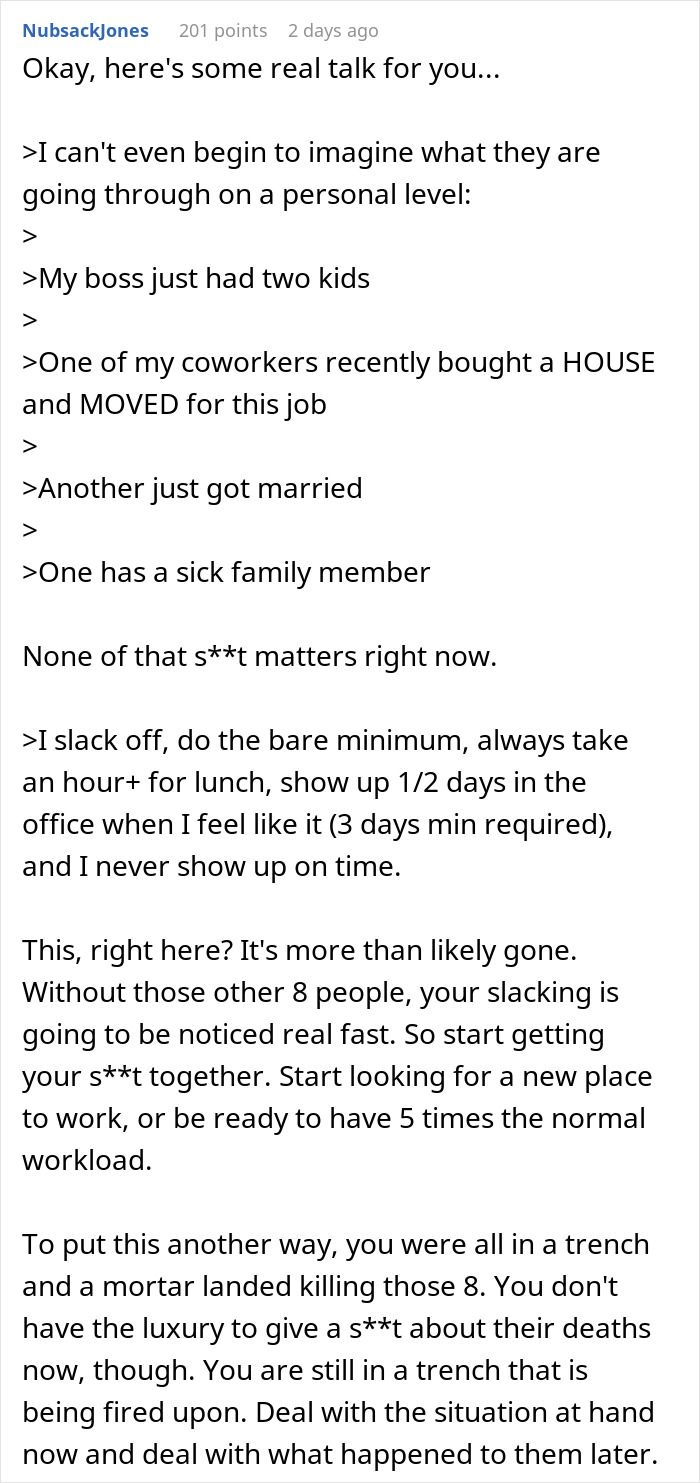


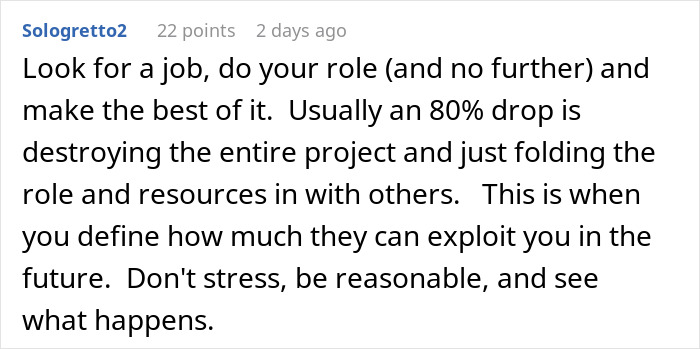
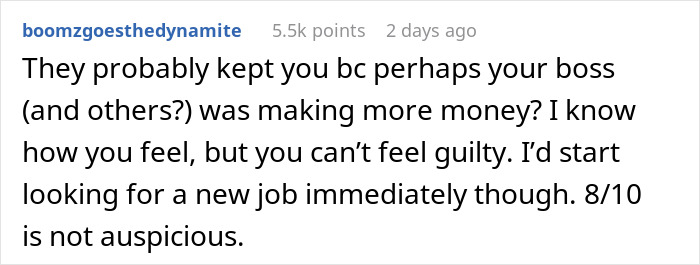

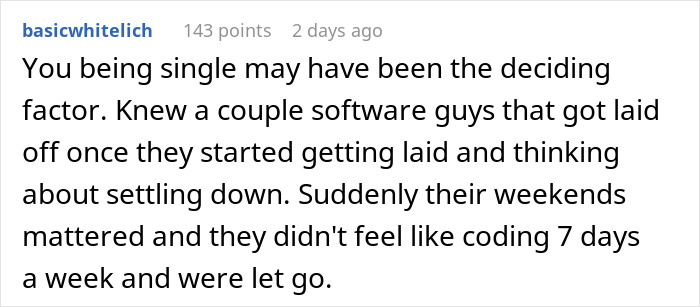


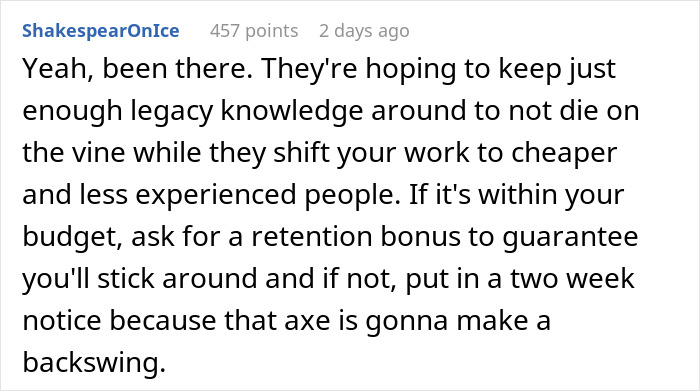

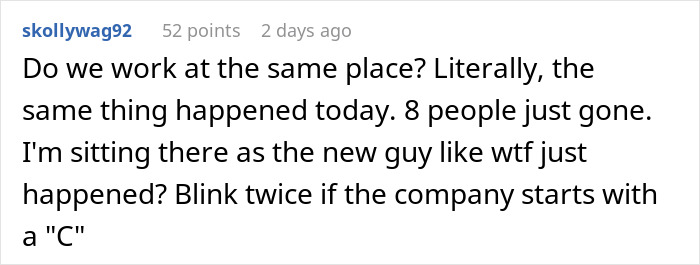












































32
10